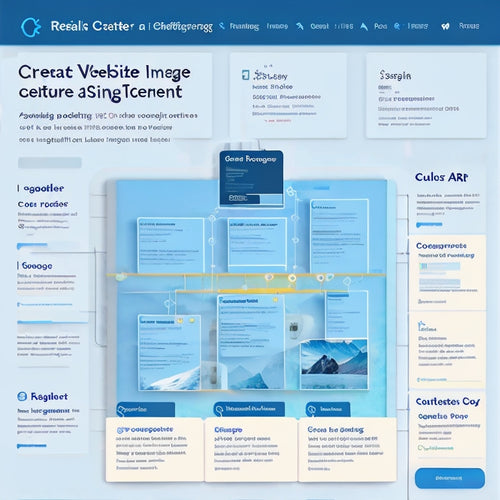
Browser Glitches: How to Regain Smooth Browsing
Share
Browser glitches, often caused by misconfigured settings or incompatible plugins, can impede the browsing experience. Understanding the root causes, such as disabled JavaScript or cookies, and third-party plugin issues, is vital. To regain smooth browsing, try enabling JavaScript and cookies, reloading the page, and addressing plugin issues. Clearing cache and cookies, updating plugins, and troubleshooting browser settings can also improve efficiency. By addressing the underlying causes and implementing these solutions, users can achieve seamless browsing. To access the full potential of your browser, explore the specific steps to optimize performance and eliminate browser glitches for good.
Key Takeaways
• Ensure JavaScript and cookies are enabled in your browser settings to prevent common glitches and issues.
• Clear cache and cookies regularly to remove temporary files that can cause browsing problems.
• Update browser plugins and troubleshoot settings to address potential conflicts and incompatibilities.
• Identify and disable third-party plugins that may be blocking JavaScript or causing interruptions.
• Take proactive measures to maintain a smooth browsing experience by understanding root causes and seeking support when needed.
Causes of Browser Glitches
Several factors can contribute to the occurrence of browser glitches, compromising the overall browsing experience. Identifying root causes is vital to preventing future glitches.
One common culprit is disabled JavaScript or cookies in the web browser, which can hinder website functionality. Power users with super-human speed may also experience interruptions. Additionally, third-party browser plugins can block JavaScript, leading to browsing issues.
To prevent such glitches, it is important to make sure that cookies and JavaScript are enabled. By understanding these root causes, users can take proactive measures to prevent future disruptions and maintain a smooth browsing experience.
Resolving Browsing Issues
When browser glitches occur, resolving the issue promptly is essential to restoring a seamless browsing experience, and this can often be achieved by addressing the underlying causes identified earlier.
Quick fixes can be applied to resolve common errors, such as enabling JavaScript and cookies, reloading the page, and addressing third-party plugin issues. By following these steps, users can regain access to a smooth browsing experience.
It is essential to troubleshoot browser settings, update plugins, and clear cache and cookies to resolve common errors. Additionally, seeking assistance from support resources can provide further guidance.
Optimizing Browser Performance
To ensure a smooth and efficient browsing experience, optimizing browser performance is fundamental as it directly impacts the speed and responsiveness of web pages. Improving efficiency and enhancing speed can be achieved by clearing cache and cookies, updating browser plugins, and troubleshooting browser settings.
Additionally, ensuring JavaScript is enabled is pivotal as it plays a critical role in website functionality. By addressing these optimization factors, users can experience a seamless and responsive browsing experience. This, in turn, boosts user engagement, reduces frustration, and enhances overall website usability.
Frequently Asked Questions
Can Browser Glitches Affect My Online Security?
Browser glitches can indeed compromise online security, exposing users to privacy risks, cyber attacks, and malware threats, which can lead to data breaches and unauthorized access to sensitive information.
Will Clearing Cookies Delete My Saved Login Information?
When clearing cookies, saved login information may be deleted, compromising password management and data privacy. However, employing cookie management best practices and secure password storage can mitigate security risks and guarantee a safe online experience.
Are Browser Glitches More Common on Certain Devices?
Browser glitches can occur on any device, but mobile devices are more prone due to varying screen sizes, operating systems, and browser versions, whereas desktop computers tend to have more consistent browser performance.
Can I Still Access a Website if Javascript Is Disabled?
When JavaScript is disabled, website accessibility may be limited; however, some websites can still be accessed using the NoScript extension or HTML-only browsing, ensuring browser compatibility, but potentially compromising functionality and user experience.
How Often Should I Update My Browser for Optimal Performance?
'An ounce of prevention is worth a pound of cure.' To guarantee peak browser performance, update your browser regularly, ideally every 1-2 months, to maintain browser compatibility and prevent issues, ensuring a seamless online experience.
Related Posts
-
Enhancing Online Shopping: Introducing Vimotia's Shoppable Video Experience
Vimotia Shoppable Videos UGC is a cutting-edge app that revolutionizes the online shopping experience by introducing ...
-

Why Is an HTML Sitemap Important for SEO
This article examines the importance of an HTML sitemap for SEO. It explores the benefits of using an HTML sitemap, ...
-

Which Sales Channel Is Best for Shopify
This article aims to provide an objective analysis of the various sales channels available for Shopify. It explores ...

